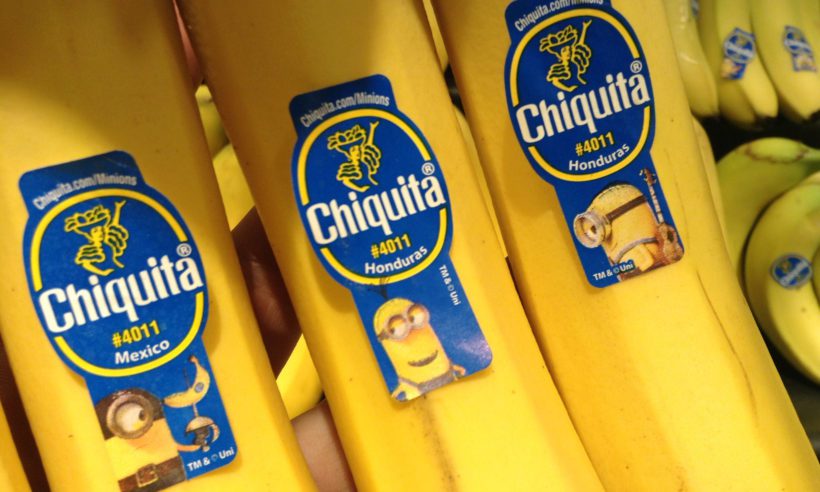Colombia Charges 13 Chiquita Executives for Alleged Role in Funding Paramilitary Death Squads
Colombia has charged 13 former executives of the banana company commonly known as Chiquita for their alleged role in financing a death squad that carried out mass killings and other grave crimes during the nation’s armed conflict.
The workers, including eight from Colombia, three from the United States, one from Honduras, and one from Costa Rica, allegedly oversaw the disbursement of funds to paramilitary death squads in the country around two decades ago.
Long-standing allegations have surrounded the company since the 1990s. In a U.S. court settlement in 2007, Chiquita stated that it had been forced to pay millions of dollars to rightwing paramilitary and Marxist guerrilla groups alike for security protections that would allow it to operate in Colombia. The company paid a $25 million USD fine as part of the settlement.
UPDATE: At his request, Finance Colombia wishes to inform readers of this article that Colombia’s attorney general removed Mr. Juan Diego Trujillo Botero from the investigation & criminal proceedings cited in this article.
The office of the attorney general said in a statement that it has evidence the Chiquita Brands executives directed funds through a subsidiary, Banadex and Banacol, “for the presumed financing” of a faction within the United Self-Defense Forces of Colombia (AUC) paramilitary group.
Specifically, the attorney general says company executives directed funds to the Arlex Hurtado front of the AUC while it was led by Raúl Emilio Hasbún Mendoza, known by the alias Pedro Bonito. This faction killed those it opposed and carried out further criminal activity in the Caribbean coastal areas of Urabá and Santa Marta for nearly a decade from around 1996 to 2004, according to authorities.
The evidence demonstrates “the participation of managers and some employees of these companies, whether by decision-making, intervention and/or participation in the promotion and financing of the illegal group,” stated the attorney general’s office. Some of the funds were “delivered directly and consigned to the bank accounts of an organization created to support the illegal armed structures of the AUC,” said the authority in a statement.
The charges of aggravated conspiracy have been levied against Reinaldo Elías Escobar De La Hoz (of Colombia), Luis Germán Cuartas Carrasco (Colombia), Víctor Julio Buitrago Sandoval (Colombia), Álvaro Acevedo González (Colombia), Víctor Manuel Henríquez Velásquez (Colombia), Javier Ochoa Velásquez (Colombia), Juan Diego Trujillo Botero(Colombia), Jorge Alberto Cadavid Marín (Colombia), Dorn Robert Wenninger (United States), John Paul Olivo (United States), Charles Dennis Keizer (United States), José, Luis Valverde Ramírez (Costa Rica), and Fuad Alberto Giacoman Hasbún (Honduras).
Prosecution of the long-ago incidents has come as a result of the attorney general’s office being tasked with investigating crimes committed by third parties, particularly the financiers of severe crimes, during a half-century of conflict.
The AUC formally disbanded in 2006 after signing an agreement with then-President Álvaro Uribe. Though the organization as it was formulated and members went to jail, the mission of the paramilitary group largely continues on to this day under other names, from more drug-focused criminal bands often categorized under the label BACRIM, such as Clan del Golfo, to more direct-descendent death squads who continually disperse public threats, such as the Black Eagles (Aguilas Negras).
Hundreds of social activists and left-leaning local actors have been killed in the two years since the Colombian government, under former President Juan Manuel Santos, first signed a peace accord with the leftwing guerrilla group the Revolutionary Armed Forced of Colombia (FARC).
(Photo credit: Mike Mozart)

























